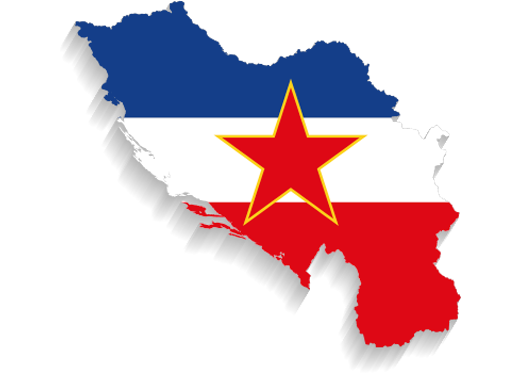(Grant Agreement n. 669194)
(Vrsac, 31/8/1913)
Member - Federal executive council (1967-1971)
Toma Granfil was a Serbian member of the Federal Executive Council (FEC) between 1967 and 1971. During this period, he cooperated closely with his homologues Kiro Gligorov and Mika Špilijak; Yugoslav representative to EEC Miloš Oprešnik and the cabinet of Josip Broz Tito. In 1967 he was appointed by the President of the Federal executive council, Mitija Ribičić, as responsible for relations with the EEC. He was the Yugoslav representative during the negotiations for the first trade agreement between Yugoslavia and the Community (March 1970). Within the FEC, he was in favour of Yugoslavia’s economic rapprochement to the EEC as such, insisting on the political and incremental nature of this relationship. For this reason, in 1968 he proposed the establishment of official diplomatic relations with the Community. Among the EEC member states, he identified Italy as Belgrade’s closest partner. He also successfully sponsored the establishment of direct contacts between Tito and the European Commission president, Jean Rey, inaugurating a practice of bilateral meetings which were to develop throughout the 1970s. Granfil also contributed to the public debate on Yugoslavia’s relations with the Community. Between 1969 and 1971, he published a number of major articles in Medjunarodna Politika, Yugoslavia’s leading review of international affairs, underlying the link between the country’s economic modernisation and the development of relations with the EEC.
|
As the leading intellectual of the League of Communists of Yugoslavia, Kardelj was a major protagonist in the re-launch of the self-management system in the 1970s. He was very active in communicating the "economic modernity" of Yugoslavia to t... |
|
Mirko Tepavac was the Federal foreign affairs secretary from 1969 to 1972. During this period, he gave a fundamental contribution to the country’s predicaments towards Western European economic integration. A representative of Serbia&rsq... |
|
A Macedonian member of the LCY, Kiro Gligovorv was among the protagonists of Yugoslavia’s market-oriented reforms in the mid-1960s. Accordingly, as a Vice-President of the Federal Executive Council between 1967 and 1969, he was in favour... |
|
Mika Špiljak headed the Federal Executive Council between 1967 and 1971. A member of the Croat liberal faction within the LCY, he presided over Yugoslavia’s rapprochement to the EEC in the late 1960s/early 1970s. He supported and ... |
|
A Slovene member of the LCY, Vrhunec was the Head of Cabinet of the President of the Republic between 1967 and 1973. He regarded positively Yugoslavia’s opening to the Western European economic system, favouring Tito’s positive sta... |
|
A Slovene member of the LCY, banker, businessman and career diplomat, Miloš Oprešnik was appointed as Yugoslavia’s first official representative to the EEC in September 1968. Oprešnik belonged to a generation of poli... |
|
A long-standing member of the LCY, Miloš Minić became the Federal foreign affairs secretary after the normalisation process which put an end to the "nationalist" course in Croatia, Slovenia and Serbia between 1971 and 1972. Although he ... |
|
Tito was one of the leading figures in the rapprochement between Yugoslavia and the EEC. His active foreign policy included frequent meetings with Western European heads of state and government and with representatives of EEC Institutions, inc... |
|
Note regarding the conclusion of the Commercial Agreement between Yugoslavia and EEC
AMAE, Problem 241/2C52/Common Market, Belgium, p. 43-53 | 40028/23.03.1970
It presents in detail the stipulations of the agreement concluded on 19 February 1970 between Yugoslavia and the EEC, the advantages Yugoslavia obtained through this agreement. It makes proposals regarding Romania's export in the EEC countries, based on 'our experience' and the 'experience of Yugoslavia'. The note mentions a list of attachments (the agreement between Yugoslavia and the EEC, the letters, the press communique), which are missing from the file though. - Available only in the Archive: https://www.mae.ro |
